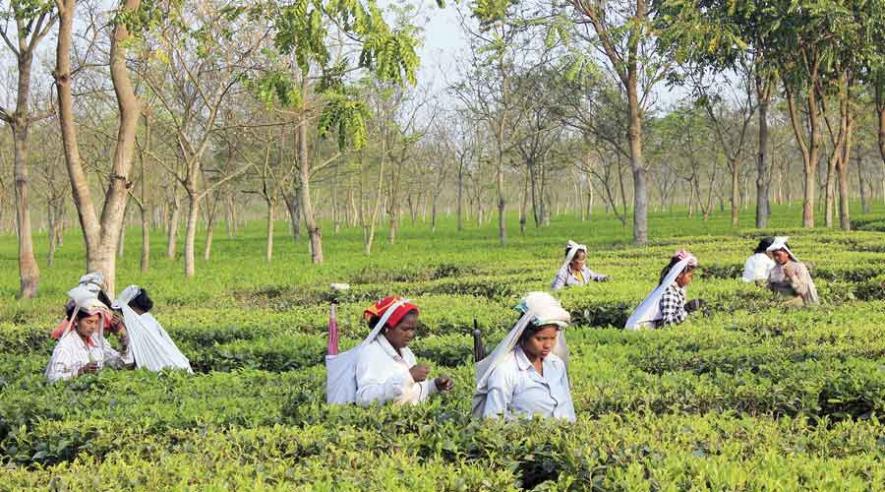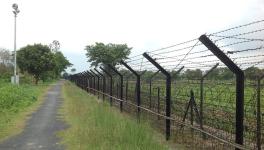Protests 'Force' West Bengal Govt to Withdraw Land Assessment Exercise in the Hills

Image for representational purpose. Credit: The Telegraph
Kolkata: The West Bengal government has withdrawn the land assessment exercise it had launched in the hills and Terai and Dooars regions to assess the scope of granting land pattas in the hills.
A few critics have alleged that this exercise was being carried out to demarcate excess lands to hand it over to industrialists for tourism infrastructure. West Bengal CM had announced that the government would allocate five to 10 decimals of land to “homeless residents”. It can be recalled that the bulk of the land in the hills has been taken on lease from the government for tea gardens, and the rest of the land belongs to the government.
A government source, who did not wish to be named, told NewsClick that the residents of the hills had been termed as “homeless” in a government order, making all the settlers of the hills appear as illegal settlers – even though many of these families have continued to stay in the hills for about a century.
However, the government, after protests from the hill dwellers, was reportedly forced to stop the scrutiny exercise as the latter demanded land pattas on a "where is" basis, and not just five to 10 decimals of land. Though in the Terai and Dooars, this exercise will continue, in the hill region under the Gorkhaland territorial administration area, this exercise has been withdrawn.
According to the allegations levelled by the dwellers, the land survey aimed to remove the dwellers from their lands in the tea gardens and declare them as “excess lands”.
NewsClick spoke with Saman Pathak, leader of the joint forum of tea workers in the hills, who asserted that the plan to allocate five to 10 decimals of land is not viable. He said, “The tea workers have been living on their land for over 100 to 150 years. The government must hand over land rights to the tea garden workers. For this, a roundtable conference should be held with the representatives of tea workers, tea garden owners, and trade unions, and only then can a decision be reached.”
In the hills, there are 87 tea gardens employing over 70,000 plantation workers. Taking into account the Terai and Dooars, the number is more than 180 tea gardens employing more than 2.5 lakh plantation workers.
It can be recalled that the West Bengal government, through a Cabinet decision, has allowed the conversion of leasehold lands under the West Bengal government to freehold lands, and 15% of tea garden land has been allocated for tourism. It means that more than 150 acres of land in the hills have been designated for hotel infrastructure. Various hotel projects have already begun in the hills, including five-star hotels.
The tea garden workers have expressed their dissatisfaction with the turn of events in the hills, such as the Chaa Sundari project – where tourism projects are “replacing traditional tea cultivation”. Many of the next-generation residents of the tea garden areas have left the gardens, and such decisions will displace them from their ancestral land, they have alleged.
More than one million people in North Bengal, who are directly or indirectly dependent on the tea garden economy of the region, have been struggling with their livelihoods. Since the regime change in the state in 2011, the constant refusal of the West Bengal government to comply with the Minimum Wages Act and statutory labour regulations, even in the recent Tripartite Meets, has intensified the workers' plight.
While the price of everything rises, the tea garden labourers are struggling to make ends meet. Even starvation-related deaths have reportedly occurred due to the withdrawal of assistance to the workers of closed tea gardens.
However, hunger and poverty-related deaths of tea garden workers are not new and have been reported for close to a decade. But the situation seems to have reached a tipping point now.
Get the latest reports & analysis with people's perspective on Protests, movements & deep analytical videos, discussions of the current affairs in your Telegram app. Subscribe to NewsClick's Telegram channel & get Real-Time updates on stories, as they get published on our website.
























